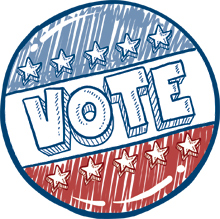SCOTUS leaves intact preclearance requirement in Voting Rights Act, strikes down the formula

Image from Shutterstock.
The U.S. Supreme Court has struck down a formula in the Voting Rights Act that is used to determine which jurisdictions have to get advance clearance before making changes to voting practices.
In a 5-4 decision, the court said the formula of Section 4 is unconstitutional given advances in voting rights in the covered states. Chief Justice John G. Roberts Jr. wrote the majority opinion (PDF).
The current formula requires preclearance for changes to voting practices by nine states, mostly in the South, and parts of seven others. If Congress wants to single out certain states for scrutiny, Roberts said, they must be chosen “on a basis that makes sense in light of current conditions.”
“Coverage today is based on decades-old data and eradicated practices,” Roberts said. “The formula captures states by reference to literacy tests and low voter registration and turnout in the 1960s and early 1970s. But such tests have been banned nationwide for over 40 years. … And voter registration and turnout numbers in the covered states have risen dramatically in the years since.”
Indeed, Roberts said, by 2009 the racial gap in voter registration and turnout was lower in states originally subjected to preclearance requirements than it was nationwide.
The court did not rule on Section 5, the provision that requires state and local government entities with a history of discrimination to get federal approval of changes to their voting laws. Roberts also stressed that the ruling did not affect Section 2, the permanent, nationwide ban on on racial discrimination in voting.
Roberts said that Sections 4 and 5 of the Voting Rights Act, passed in 1965, were “strong medicine” intended to address entrenched racial discrimination in voting. The preclearance conditions were originally set to expire in five years, but “nearly 50 years later, they are still in effect,” Roberts said.
“Our country has changed,” Roberts said, “and while any racial discrimination in voting is too much, Congress must ensure that the legislation it passes to remedy that problem speaks to current conditions.”
Justice Ruth Bader Ginsburg dissented in an opinion joined by Justices Stephen G. Breyer, Sonia Sotomayor and Elena Kagan. “True, conditions in the South have impressively improved since passage of the Voting Rights Act,” she wrote. But the reason, she said, was because the preclearance requirement had bocked or deterred discriminatory voting changes. “The court today terminates the remedy that proved to be best suited to block that discrimination,” she said.
The case is Shelby County v. Holder.
Hat tip to SCOTUSblog.
Prior coverage:
ABAJournal.com: “Scalia: Reauthorized Voting Rights Act was ‘perpetuation of racial entitlement’ ”
ABAJournal.com: “Chemerinsky: ‘Stakes are enormous’ in voting rights case”
ABAJournal.com: “Historically discriminatory areas should need preapproval for election change, says ABA amicus brief”
ABAJournal.com: “US Supreme Court to Review Voting Rights Act Case Out of Shelby County, Ala.”



